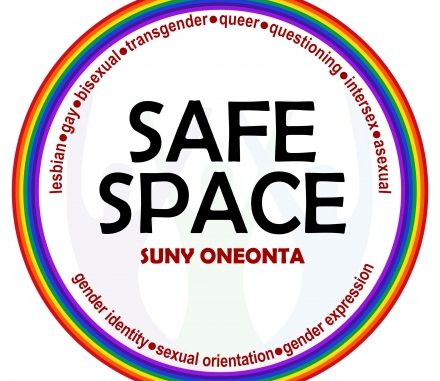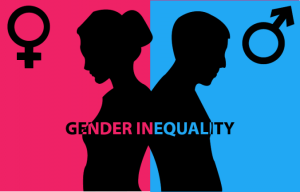
Katie Hèbert, Staff Writer|
Although construction has moved offices around in Hunt Union, that hasn’t stopped the Gender and Sexuality Resource Center from starting the school year with excitement and activities, even while restarting in a new location. If you’ve seen student coordinators of the center tabling in the Hunt Union Living Room, you’ve probably seen the many events they have been promoting happening in the coming weeks and throughout the semester. One of those continuing events is a Dialogue Series, pinpointing varying topics of gender and sexuality every other Thursday throughout the course of the fall semester.
Thursday, September 13, kicked off the Dialogue Sessions, with the first dialogue being “Gender Stereotypes: Are Women Still Being Held Back?” The focal point of this dialogue was to question “how stereotypes today still impact the movement towards gender equality.” While Emily Phelps, the Assistant Director of Student Life and Leadership and the Director of the Gender and Sexuality Resource Center, coordinated and opened the event, Angie Eicher, Associate Director of Student Life and Leadership led the discussion. Through her work with Greek Life on SUNY Oneonta’s campus, Eicher acknowledged that she sees gendered stereotypes happening all the time within the sororities and fraternities, and the assumptions that come along with being a member of a Greek organization.
Eicher opened the discussion with defining sex and gender, in which sex is based on genitalia and gender is the social roles based on sex. She then went on to describe “gender roles,” the concept coined in around 1965 (although institutionalized throughout history). She went on to talk about non-binary identities, and studying gender beyond genitalia. Eicher then followed with asking what stereotypes are for men and women.
In terms of stereotypes of men, the room answered that men are associated with aggression, anger, and the inability to ask for help. There’s a certain fear that plays within masculinity that anything not overly masculine is automatically gay; it is an unspoken rule that men should not be. Following that, participants shared that men have this role to fulfill hypersexualization, and if they do not have lots of sex, they are also perceived as gay which jeopardizes their masculinity. People also noted the complex of being “super manly” with being a perfect gentleman, and having to always fulfill both sides of that spectrum. The stereotype of men not showing emotions came back into the discussion with men’s mental illness, eating disorders, and assault, and how they are silenced because of the threat to their masculinity.

In terms of stereotypes for women, participants shared that women are seen as unable to be independent, as well as caught in the dichotomy of being either a “slut” or a “prude” in terms of sexuality. Emily Phelps mentioned hair color as a stereotype, describing the hypersexual connotation that comes along with “blondes having more fun,” on top of the “dumb blonde” trope. There was conversation about women in the workforce, leading to the question what happens for women who do want to be stay at home moms, even if that perpetuates the stereotype women have been fighting back from for so long. There were also points made about women’s lack of autonomy, in which they are stripped of agency and personal freedoms in many aspects, especially in health and medical fields.
Eicher later posed the question: What can we do to break gender stereotypes? One major answer was to normalize many things that are specifically gendered to be more neutral, and to push the boundaries of who can do what. One participant mentioned men in makeup, how people like James Charles, the first man to appear in CoverGirl advertisements, along with many other social media influences, are breaking the idea that makeup and beauty is strictly for women. Another major answer was education, and working in our daily lives to educate those around us in small ways to break away from gender norms and expectations. As young people, we are getting more comfortable and accepting of breaking boundaries, but many generations before us are not there yet, and it was noted how it is our job to educate our parents, families, and people in our communities. “As one person, you can do the work,” said a participant, reminding us that we all have the ability to create an impact. Eicher ended with a cute video of an advertisement, showing a man working out in a gym to become a boxing card round holder instead of a boxer, breaking the stereotypes of what men are expected to be.
The Gender and Sexuality Resource Center will be putting on these dialogue sessions every other Thursday, 6pm in the Union Square room. of Hunt Union. The next session is happening September 27 with Faith Tiemann and Pathy Leiva, where they will be discussing “Where We Meet: The Intersection of Race and Gender Stereotypes.” The Gender and Sexuality Resource Center will be putting on many programs throughout the year, and is located in Hunt Union 5A, open from 12pm to 7pm, Monday through Friday.
Leave a Reply